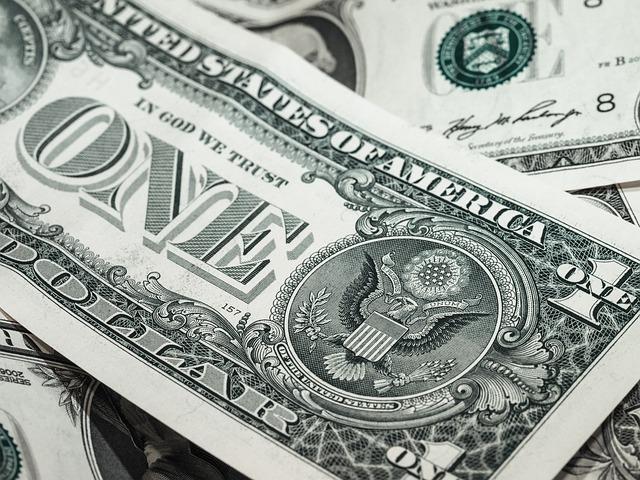starting to wrap your head around the economy can feel like trying to learn a new language—confusing, overwhelming, and maybe a little intimidating. But fear not! Whether you’re totally new to the whole economy thing or just want to get a better grip on how money flows around us, you’ve come to the right place. In this article, we’ll break down some super simple tips that’ll help you get started on understanding the economy without the confusing jargon. Ready to become a little more money-savvy and make sense of all those economic buzzwords? Let’s dive in!
Understanding the Basics of economy Without the Jargon
At its core, the economy is simply how goods and services move around between people, businesses, and governments. Think of it like a giant marketplace where everyone plays a role – some produce things, some buy things, and others manage how these exchanges happen. But rather of getting lost in intricate terms, it helps to focus on the basics: money flow, jobs, and prices. When more people have jobs and money to spend,businesses grow,and the economy feels healthy. When money flow slows or prices rise too fast, things get tricky.
Here’s a quick cheat sheet to keep in mind:
- Supply and Demand: More demand than supply usually means prices go up.
- Inflation: When prices rise overtime, your money buys less.
- GDP (Gross Domestic Product): The total value of goods and services made in a country – a basic measure of economic health.
- Interest Rates: How much extra you pay or earn on loans and savings.
| Term | What It Means | Why It Matters |
|---|---|---|
| Inflation | Prices going up over time | Reduces your buying power |
| GDP | value of everything made | Shows economy’s size and growth |
| Interest Rate | Cost of borrowing money | Affects loans and savings growth |

How Your Daily Choices Shape the Economy More Than You Think
Every purchase you make sends ripples through the economy, influencing businesses, jobs, and even the environment. When you choose to buy locally or support small businesses, you’re directly boosting your community’s economic health. On the flip side, opting for big corporations can lead to profits leaving your neighborhood. It’s not just about what you buy, but how ofen and from whom. For example, spending $20 at a local bakery keeps money circulating locally, supporting jobs and local suppliers. Simple daily habits like these create a strong foundation for a vibrant economy that benefits everyone.
Here’s a quick look at the impact of your choices:
- Buying local: Supports community jobs and reduces environmental impact.
- Choosing lasting products: Encourages eco-amiable production and long-term savings.
- Using cash or cards wisely: Affects how money moves through banks and businesses.
- Spending vs. saving: Balances economic growth with personal financial security.
| Choice | Economic Effect | Example |
|---|---|---|
| Buying Local | Strengthens small businesses | $20 spent at farmer’s market |
| Going Green | Supports sustainable industries | Reusable bags for groceries |
| Limiting Impulse Buys | encourages mindful spending | Waiting 24 hours before purchase |
| saving Regularly | Boosts financial stability | Monthly deposit into savings |

Smart Budgeting Hacks That Actually Make a Difference
Getting your finances in order doesn’t have to feel like climbing a mountain. Start by tracking your spending for just one month. You’ll be surprised at where your money disappears — that daily coffee run or those little impulse buys add up fast! use apps or simple spreadsheets to categorize expenses, then identify where to cut back without sacrificing the fun stuff. budgeting isn’t about deprivation; it’s about smart choices that stretch your dollars further.
another game-changer? The “Pay Yourself First” principle. Before tackling bills or shopping,set aside a fixed amount for savings or investments. Automating this transfer removes temptation and builds your financial cushion effortlessly. Below is a quick guide on how a $500 monthly budget can be smartly allocated—notice how even small shifts make a big impact:
| Category | Amount | tip |
|---|---|---|
| Essentials | $250 | Cook at home more |
| Entertainment | $50 | Use free events |
| Savings | $100 | Automate transfers |
| miscellaneous | $100 | Set spending limits |
- Use envelopes: Physically separate cash in different envelopes for spending categories.
- Review monthly: Tweak your plan to fit changing priorities and avoid burnout.
Investing 101 for Beginners Who Don’t Want to Overthink It
Getting started with investing doesn’t have to feel like solving a complicated math problem. The key is to focus on a few simple principles that can make your money work smarter, not harder. First,think of investing as a long-term game—patience wins. instead of chasing hot tips or trying to time the market, focus on steady growth by spreading your money across different types of investments. Diversification isn’t just a fancy word; it’s your best friend to reduce risk. You can start with basic options like index funds or ETFs that automatically give you a slice of many companies at once.
another golden rule? Keep your costs low. High fees and frequent trading can quietly eat away at your profits over time. Here’s a quick cheat sheet to remember before making any investment decision:
- Start small: Even $50 a month builds up more than you think.
- Stick to what you understand: If you can’t explain it in simple terms, it might be too complex.
- Automate: Set up automatic contributions to make investing a habit,not a headache.
- Check but don’t obsess: Review your portfolio periodically, but avoid daily stress.
| Investment Type | Risk Level | Potential Return | Best For |
|---|---|---|---|
| Index Funds | Low to Medium | Moderate | Beginners & Long Term |
| Stocks | Medium to High | High | Growth Seekers |
| Bonds | Low | Low to Moderate | Stability & Income |
| ETFs | Low to Medium | Moderate | Easy Diversification |
Avoiding Common Money Mistakes That Trip Up Newbies
Starting your financial journey often comes with a few bumps along the way, mostly because it’s easy to fall for common pitfalls. One of the biggest missteps is diving into spending without tracking where your money actually goes. Without this practice,budgeting becomes a guessing game,leading to unexpected shortfalls. Another frequent trap is accumulating debt from credit cards or loans without a clear repayment plan—this can snowball fast and block your path to financial freedom. Building good habits early, like setting clear spending limits and prioritizing debt payments, can save you tons of stress down the road.
Many newbies also overlook the power of an emergency fund, but having cash stashed away for those unexpected moments acts like a financial safety net. Additionally, it’s tempting to chase quick investment wins or follow every trending financial advice blindly. Instead, focus on steady, informed decisions that fit your personal situation. Below is a quick comparison of these key money mistakes and their smarter alternatives:
| Common Mistake | Smarter Move |
|---|---|
| Spending without budgeting | Track all expenses monthly |
| Ignoring debt repayment plans | Automate minimum payments, then tackle highest interest first |
| Skipping emergency funds | Save 3-6 months’ expenses in a separate account |
| Chasing quick investment trends | Stick to long-term, diversified portfolio |
Q&A
Q&A: Economy for Newbies – Simple Tips to Get You Started Right
Q: What exactly does “economy” mean for a newbie like me?
A: Great question! Think of the economy as the big system that involves how money, goods, and services flow between people, businesses, and governments.It’s basically the way we all make, spend, and save money. For newbies, it helps to see it as the “money dance” happening all around us every day.
Q: Why should I even care about the economy?
A: Because it affects your wallet! when the economy’s doing well, you might find more jobs, better wages, and lower prices. When it’s not, prices can go up, jobs might be harder to find, and saving money becomes tougher. Understanding the basics helps you make smarter financial decisions.
Q: What’s the simplest way to start learning about the economy?
A: Start small! Follow news about things like interest rates,inflation,or unemployment.Don’t get overwhelmed—just pick one topic at a time.Also, try to relate economic topics to your daily life, like how gas prices effect your budget or why groceries can get more expensive.
Q: Is budgeting really that important?
A: Absolutely! Budgeting is your financial GPS. It shows you where your money is coming from and where it’s going. Even if you’re making a small income,knowing your budget helps you avoid unnecessary expenses and start saving.
Q: What’s inflation, and why should I care?
A: Inflation is when prices rise over time, so your money buys less than before. For example, a candy bar that cost $1 last year might cost $1.10 this year. It’s important because if your income doesn’t keep up with inflation, your purchasing power shrinks.
Q: How can I save money without feeling like I’m missing out?
A: It’s all about balance. set realistic savings goals and automate savings if you can (like a small monthly transfer). Also, find fun but low-cost ways to enjoy life, like free community events or cooking at home with friends.
Q: Should I be investing as a newbie?
A: You don’t have to jump in right away, but it’s good to learn about basic investing. Start with small amounts and simple options like index funds. Investing helps your money grow over time, beating inflation and building wealth.
Q: Where can I find reliable info without getting overwhelmed?
A: Look for beginner-friendly blogs, YouTube channels, or podcasts focused on personal finance and the economy. Sites like Investopedia or government economic websites often explain terms in simple way. Avoid jumping into complex financial forums until you feel more confident.
Q: Any quick tips to get started?
A: Sure!
- Track your spending for a week.
- Set a tiny savings goal, like $10/month.
- Read one economic news headline a day and Google a term you don’t understand.
- Don’t be afraid to ask questions or talk to people who know about money.
Remember, everyone starts somewhere, and getting a handle on the economy can make your financial life way less stressful—and maybe even fun!
Closing Remarks
And there you have it — a no-fuss, easy-to-digest intro to getting your economy game on track! Remember, you don’t have to be a whiz with numbers overnight. Start small, stay consistent, and don’t be afraid to learn as you go. The sooner you get pleasant with these basics, the smoother your financial journey will be. Keep it simple, keep it steady, and watch your confidence (and your wallet) grow. Happy money managing!











